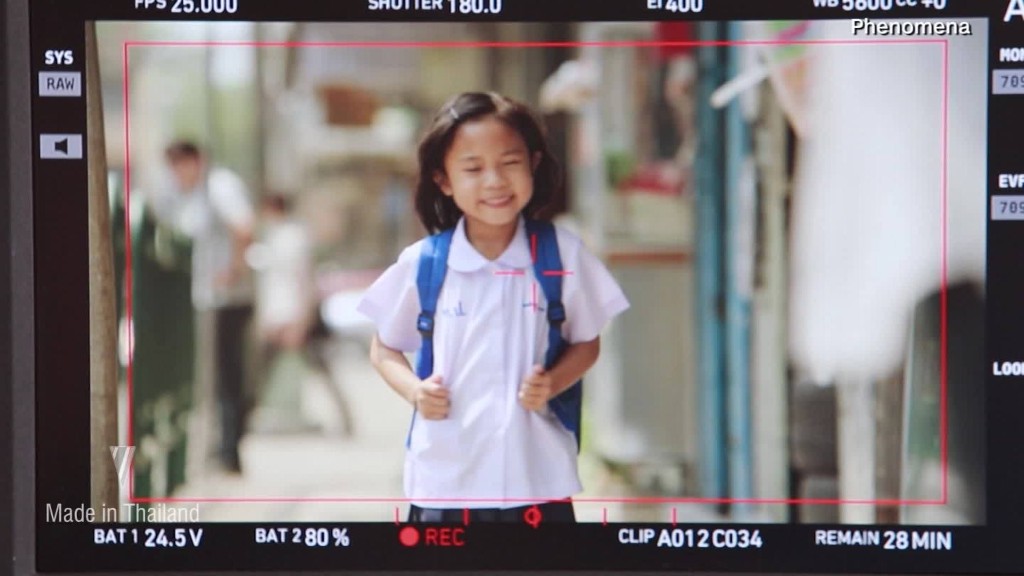
A widower sends heartfelt messages to his grief-stricken daughter. A father weeps at the sight of his newborn baby. A man reflects after giving money to the poor.
These are all scenes from TV ads in Thailand that have spread like wildfire on social media.
Often referred to as the "Land of Smiles," Thailand has crafted a niche for itself in "sad-vertising" -- ads that aim to create an emotional attachment with a brand or product by tugging at viewers' heartstrings.
Related: The Muay Thai brand using social media to take the fight to its rivals
Director Thanonchai Sornsriwichai has been at the forefront of the trend, producing sensitive works with a cinematic feel.
His video "Unsung Hero" -- made for a Thai insurance company -- shows a man embracing his elderly neighbor, watering plants and stopping to give cash to a young beggar. It was widely shared after its release in 2014 and has so far racked almost 30 million views online.
"I think if we want to sell things, we have to present reality," Thanonchai told CNN. "In the past, in advertisement, they always used beautiful people ... I personally don't agree with this idea."
His touching short films became so popular online that some YouTube users posted videos of themselves watching the ads while trying to hold back tears.
The style of ads has resonated particularly strongly with Chinese and South Korean audiences.
And it's a money spinner. In 2015, advertising companies made over $30 million in profit in Thailand from online campaigns alone, according to PwC. It forecasts the figure will triple by 2020.
Thailand is Southeast Asia's No. 1 country for YouTube users. The country's vibrant video advertising industry continues to try to harness strong emotions to promote affinity with a brand or group.
Related: This company makes food packaging out of bamboo
The top agency is Oglivy & Mather, which developed Thanonchai's "Unsung Hero" campaign. The unit, which is part of global giant WPP (WPPGY), received nine gold lions -- a prestigious advertising award -- at Cannes last year.
Oglivy Thailand chief Punnee Chaiyakul attributes the success to a willingness to experiment with new platforms and tactics.
Last year, the agency courted controversy with a campaign for animal rights group PETA that involved filming shoppers' reactions as they unwittingly opened leather handbags filed with animal flesh.
"We want to shock people at the point that they want to buy the product," Punnee said.
